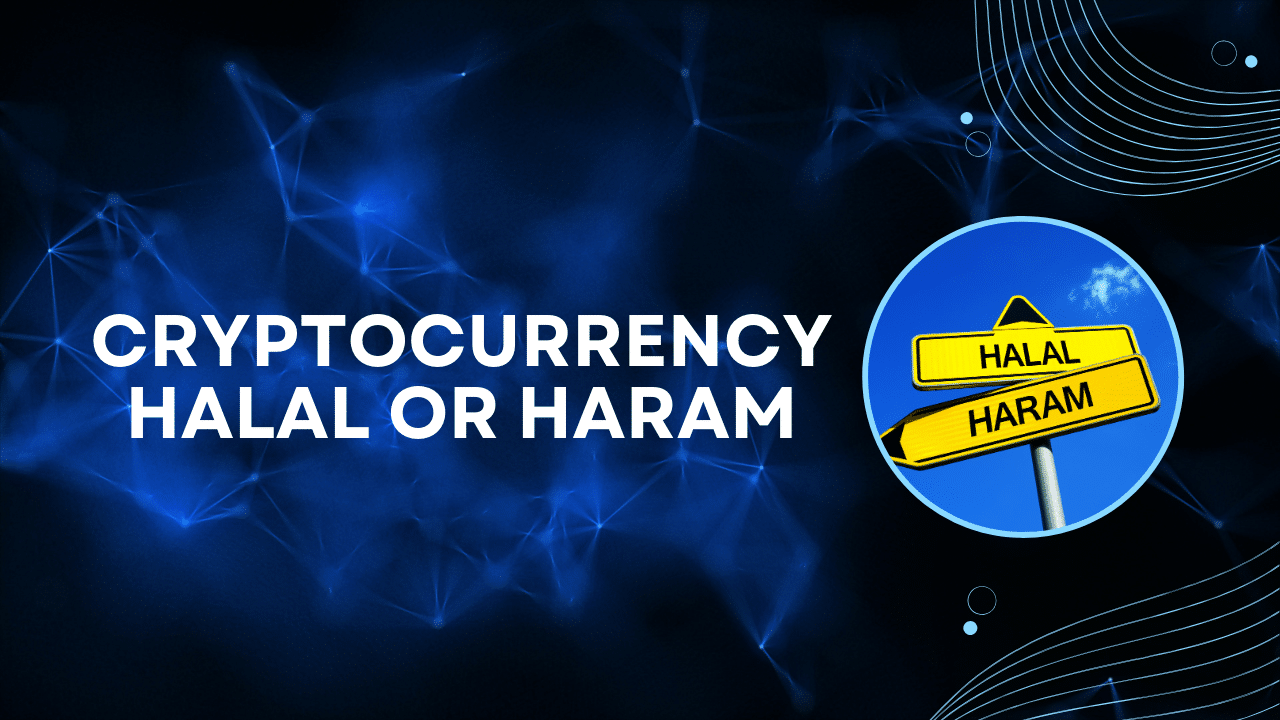Contents
|
|
Did you know that over 1.8 billion Muslims worldwide are faced with the dilemma of whether cryptocurrency is Halal or Haram under Islamic law? The debate on whether digital currencies like Bitcoin align with Islamic principles of finance and cryptocurrency halal has sparked intense discussions among scholars and investors alike. With concerns about interest (riba) and uncertainty (gharar), the compatibility of crypto currency with Sharia law remains a hot topic.
Join us as we explore different perspectives, analyze key considerations, and shed light on this intriguing intersection between modern technology and ancient beliefs.
Contents
Understanding Cryptocurrency Basics
Digital Assets
Cryptocurrencies are digital assets used as a medium of exchange, similar to traditional currencies. They exist solely in digital form and do not have a physical counterpart like coins or banknotes. Bitcoin, Ethereum, and Ripple are well-known examples of cryptocurrencies.
Cryptocurrencies operate on decentralized networks based on blockchain technology. This technology ensures the security and transparency of transactions by creating an unchangeable record of all transactions across a network system of computers. The blockchain serves as a public ledger that verifies and records each transaction involving cryptocurrency.
Cryptocurrency Halal or Haram?
The question arises whether investing in cryptocurrencies is considered halal (permissible) or haram (forbidden) according to Islamic principles. Some scholars argue that since cryptocurrencies lack intrinsic value like gold or silver, they may not qualify as true currency under Islamic finance rules. However, others believe that if the investment follows certain guidelines such as avoiding industries deemed haram (e.g., alcohol, gambling), it could be permissible.
Pros:
-
Potential for high returns on investments.
-
Accessibility to global markets 24/7.
-
Secure transactions due to blockchain technology.
Cons:
-
Volatility leading to significant financial losses.
-
Lack of regulation increases risks for investors.
Islamic Perspectives on Cryptocurrency Trading
Shariah Compliance
Cryptocurrency trading’s permissibility in Islam is a topic of debate among Islamic scholars. The crux lies in whether it adheres to Shariah principles. Views on this matter diverge based on interpretations of Islamic law. Some scholars argue that cryptocurrency trading can be considered halal (permissible) if certain conditions are met, such as ensuring transactions comply with Islamic finance principles.
Cryptocurrencies’ decentralized nature challenges traditional financial structures, leading to varied opinions within the Muslim community regarding their permissibility under Shariah law. While some scholars view cryptocurrencies like Bitcoin as akin to commodities and thus permissible for trade, others express concerns about their speculative nature and lack of intrinsic value.
Conditions for Permissibility
For cryptocurrency trading to align with Shariah principles, it must adhere to specific guidelines outlined by Islamic finance experts. Transactions should avoid elements deemed haram (forbidden) in Islam, such as riba (interest), gharar (uncertainty), and maysir (gambling). Investments should not support activities contrary to Islamic values or involve prohibited sectors like alcohol, gambling, or pork products.
-
Pros:
-
Potential for wealth accumulation through permissible means.
-
Access to innovative investment opportunities aligned with modern technology.
-
Cons:
-
Risks associated with price volatility and market speculation.
-
Challenges in ensuring full compliance with complex Shariah finance regulations.
Gharar and Riba in Cryptocurrency Investments
Understanding Gharar in Crypto
Gharar, or uncertainty, is a key consideration in determining the permissibility of cryptocurrency investments. In Islamic finance, gharar refers to ambiguity or risk that may lead to disputes.Gharar can arise due to the volatile nature of digital assets like Bitcoin and Ethereum. For instance, the fluctuating prices and lack of regulatory oversight contribute to uncertainty for investors.
Cryptocurrency transactions involving excessive speculation or unclear terms could be deemed non-compliant with Shariah principles due to the presence of gharar. To mitigate this risk, investors should opt for more stable cryptocurrencies or engage in trades with clear terms and conditions. By minimizing uncertainty, individuals can align their crypto investments with Islamic finance guidelines.
The Impact of Riba on Crypto Transactions
Riba, which translates as usury or interest, is strictly prohibited in Islam. In the context of cryptocurrencies, riba can manifest itself through interest-based lending platforms that offer high returns on investments. These platforms often promise fixed profits without bearing any actual business risks, resembling conventional interest-based schemes.
Investing in cryptocurrencies through platforms offering guaranteed returns may involve riba elements that contradict Islamic financial principles. To ensure compliance with Shariah law when engaging in crypto transactions, individuals must steer clear from activities associated with riba-like characteristics such as fixed interest rates or unjust profit-sharing arrangements.
Non-Tangible Nature of Cryptocurrencies and Shariah Compliance
Challenges in Islamic Finance
Cryptocurrencies’ intangible nature poses challenges in aligning with Islamic finance principles. Islamic finance emphasizes tangible assets, unlike cryptocurrencies that lack physical backing. This raises concerns about the acceptance of digital currencies in compliance with Shariah law.
Ensuring transparency and accountability is crucial for Shariah compliance when dealing with cryptocurrencies. The speculative nature of these digital assets adds complexity to their classification within the framework of Islamic finance. Without clear guidelines, determining the permissibility (halal) or prohibition (haram) status becomes challenging.
Importance of Tangible Assets
In Islamic finance, tangible assets like gold, silver, or real estate hold significant value due to their physical presence. These assets provide a sense of security and stability compared to non-physical entities like cryptocurrencies. For instance, gold has been historically recognized as a stable store of value in Islamic finance due to its intrinsic worth.
The philosophy behind Islamic financial principles revolves around promoting economic activities that benefit society while adhering to ethical standards. The intangible nature of cryptocurrencies raises questions about their alignment with these core values, leading to debates on whether they serve a beneficial purpose within an Islamic financial framework.
High-Risk Nature of Cryptocurrency Investments in Islam
Market Volatility
Cryptocurrency investments are known for their high volatility, meaning prices can fluctuate significantly in a short period. For investors, especially those adhering to Islamic principles, this poses a challenge as uncertainty contradicts the stability sought under Shariah law. The rapid price changes inherent in cryptocurrencies make it challenging to predict returns accurately.
Investors need to be cautious and implement risk management strategies to safeguard their investments from sudden market shifts. One approach is diversification, spreading investments across different assets or industries. By doing so, investors can minimize the impact of potential losses on their overall portfolio. Setting stop-loss orders can help limit losses by automatically selling an asset if its price reaches a predetermined level.
Permissibility Evaluation
When considering whether cryptocurrency investments align with Islamic principles, one must evaluate the balance between risks and rewards. While the high-risk nature of cryptocurrencies may deter some Muslim investors due to concerns about gambling (maisir) and uncertainty (gharar), others argue that the potential rewards justify these risks within certain limits set by Shariah law.
Pros:
-
Potential for high returns
-
Accessible investment option
Cons:
The Role of Islamic Scholars on Cryptocurrency’s Halal Status
Religious Interpretations
Islamic scholars hold the key to determining whether cryptocurrency is considered halal or haram. Their religious interpretations provide guidance for individuals navigating the ethical complexities of investing in digital assets. By seeking advice from knowledgeable scholars, investors can gain insights into the permissibility of engaging in cryptocurrency activities within an Islamic framework.
Scholars analyze various aspects of cryptocurrencies, such as their underlying technology and how transactions are conducted, to form opinions on their halal status. For example, some scholars view cryptocurrencies as permissible due to their decentralized nature and potential benefits for financial inclusion. Conversely, others express concerns about speculative trading and lack of tangible value associated with digital currencies.
Ongoing Discourse
The diverse opinions among Islamic scholars contribute to an ongoing discourse surrounding the permissibility of cryptocurrency investments. This diversity reflects the dynamic nature of interpreting religious principles in modern contexts like digital finance. As a result, individuals interested in investing in cryptocurrencies often seek guidance from multiple scholars to form well-rounded perspectives on whether such investments align with Islamic teachings.
Shariah-Compliant Alternatives to Traditional Cryptocurrencies
Addressing Ethical Concerns
Creating Shariah-compliant alternatives to traditional cryptocurrencies is crucial for addressing ethical concerns within the Muslim community. By developing digital assets that adhere to Islamic financial principles, projects are offering innovative solutions. These initiatives aim to ensure that investments align with Shariah guidelines, providing a more ethically sound option for Muslim investors.
Projects focusing on halal digital assets have gained traction in many countries, catering to the needs of individuals seeking investment opportunities that comply with their religious beliefs. For instance, platforms like Stellar and Tezos have introduced tokens designed specifically for Shariah-compliant transactions. This shift towards ethical investing reflects a growing awareness among investors about the importance of adhering to Islamic financial principles.
Beyond Conventional Cryptocurrencies
Exploring alternative investment avenues that are in line with Shariah guidelines offers investors options beyond conventional cryptocurrencies. While traditional cryptocurrencies may raise concerns due to their speculative nature, these new digital assets provide a way for individuals to invest responsibly according to their faith. By embracing halal digital assets, investors can diversify their portfolios while staying true to their religious values.
Investing in shariah-compliant projects not only aligns with ethical considerations but also opens up new opportunities in the world of finance. As more individuals seek ways to invest responsibly, these alternative options present a compelling choice for those looking to grow their wealth while following Islamic teachings. By incorporating blockchain technology into an ethical framework, these projects demonstrate how innovation and tradition can intersect harmoniously in the realm of finance.
Regulatory Frameworks Influencing Shariah Compliance in Crypto Trading
Impact on Cryptocurrency Trading Practices
Regulatory frameworks play a crucial role in determining whether cryptocurrency trading aligns with Shariah principles. Adhering to established regulations ensures transparency and legitimacy, especially concerning Islamic financial laws. For instance, countries like Malaysia have specific guidelines for Islamic finance, including cryptocurrencies.
Compliance with regulatory requirements is vital for maintaining ethical standards within the cryptocurrency space. It helps ensure that transactions are conducted ethically and legally according to Islamic principles. By following these regulations, crypto traders can navigate the complexities of digital assets while upholding their faith’s values.
Importance of Regulatory Certainty
Having regulatory certainty provides clarity for individuals engaging in cryptocurrency activities from an Islamic perspective. It helps investors understand the boundaries within which they can operate without compromising their adherence to Shariah law. Countries like Bahrain have taken steps to regulate cryptocurrencies under existing legal frameworks, offering guidance on permissible practices.
Navigating the Halal or Haram Conundrum in Crypto Investments
Understanding Halal and Haram
Halal refers to actions permissible under Islamic law, while haram denotes prohibited activities. Determining whether cryptocurrency investments fall under halal or haram categories can be challenging for individuals adhering to Islamic principles. Seeking guidance from knowledgeable scholars is crucial in making informed decisions regarding the religious permissibility of engaging in crypto investments.
Cryptocurrency’s volatile nature raises concerns among investors about its alignment with Shariah principles. While some view crypto trading as a way to earn profits, others raise questions about potential gambling elements due to price speculation and market uncertainty. Evaluating these aspects alongside personal intentions helps individuals assess whether their involvement in cryptocurrencies complies with Islamic teachings.
Considering Ethical Aspects
Investors grappling with the halal or haram dilemma must consider not only financial gains but also ethical considerations surrounding cryptocurrency activities. Engaging in illegal activities, supporting unethical ventures, or participating in transactions involving interest contradicts Shariah principles. Therefore, individuals should evaluate the legitimacy of their crypto engagements based on these ethical standards.
When navigating the complexities of determining the religious status of crypto investments, understanding both sides of the argument is essential. While some scholars argue that certain cryptocurrencies exhibit characteristics akin to gambling and are thus haram, others believe that investing responsibly without participating in illegal activities can be considered halal within specific parameters set by Islamic law.
Closing Thoughts
You’ve delved into the complexities of cryptocurrency through an Islamic lens, uncovering the challenges and considerations surrounding its halal status. As you navigate the fine line between permissibility and prohibition, remember that knowledge is your strongest ally in making informed decisions. Seek guidance from knowledgeable scholars and stay abreast of evolving regulatory landscapes to ensure your investments align with Shariah principles. Just like a sailor relies on the North Star to navigate uncharted waters, let your faith and understanding guide you through the turbulent seas of cryptocurrency trading.
In a world where digital currencies blur the lines between innovation and tradition, your commitment to upholding ethical standards sets you apart. Embrace this journey with vigilance and integrity, for in the realm of cryptocurrency, each decision shapes not just your wealth but also your moral compass. Stay curious, stay cautious, and may your investments always reflect the values you hold dear.
Frequently Asked Questions
Is cryptocurrency trading considered halal or haram in Islam?
Cryptocurrency trading’s permissibility in Islam depends on various factors such as the underlying principles of Shariah law, avoiding prohibited elements like riba (interest) and gharar (uncertainty), and ensuring transactions comply with Islamic finance principles.
What role do Islamic scholars play in determining the halal status of cryptocurrencies?
Islamic scholars analyze the features and mechanisms of cryptocurrencies to ascertain their compliance with Shariah law. Their guidance helps investors navigate the ethical implications of digital assets within an Islamic framework.
Are there Shariah-compliant alternatives to traditional cryptocurrencies available for Muslim investors?
Yes, there are emerging platforms offering Shariah-compliant digital assets that adhere to Islamic finance principles. These alternatives provide a way for Muslim investors to participate in the cryptocurrency market while aligning with their religious beliefs.
How do regulatory frameworks influence the Shariah compliance of cryptocurrency trading?
Regulatory frameworks can impact the permissibility of cryptocurrency trading by introducing guidelines that align with Islamic finance principles. Compliance with these regulations is crucial for ensuring transparency, accountability, and ethical conduct in crypto transactions from an Islamic perspective.
How can individuals navigate between determining if their crypto investments are halal or haram?
To determine the permissibility of crypto investments in Islam, individuals should seek knowledge from reputable sources, consult with knowledgeable scholars, assess each investment’s adherence to Shariah principles, avoid speculative practices, and prioritize ethical considerations when engaging in digital asset transactions.








